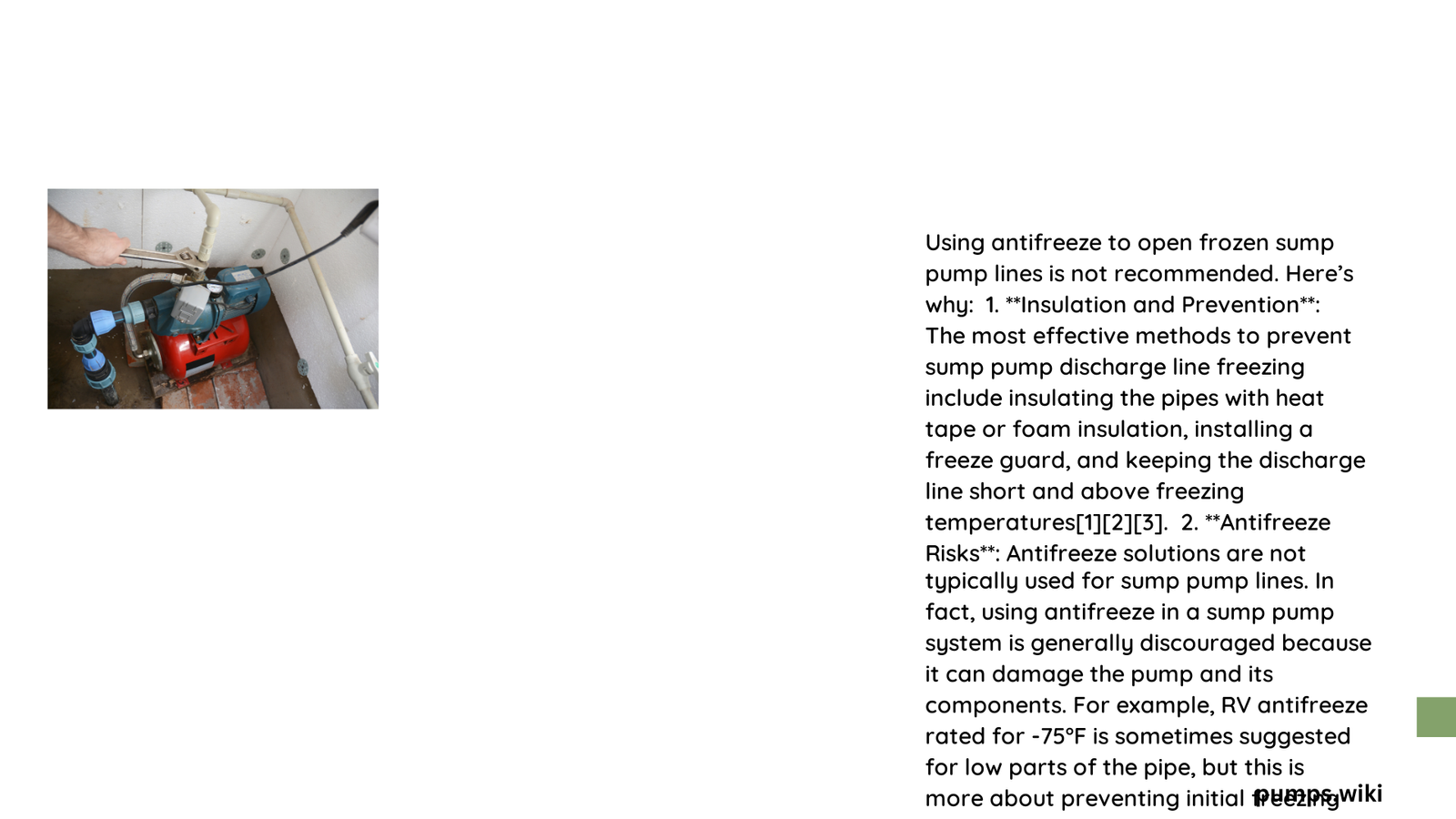Homeowners often face challenging situations with frozen sump pump lines during harsh winter conditions. While antifreeze might seem like a quick solution, professionals recommend specific approaches to safely address frozen discharge lines without causing potential damage to your plumbing system. Understanding the nuanced techniques for preventing and resolving frozen sump pump lines can save significant time, money, and potential structural complications.
What Causes Sump Pump Lines to Freeze?
Sump pump lines typically freeze due to several environmental and structural factors:
- Extreme Cold Temperatures
- Inadequate Insulation
- Poor Discharge Line Design
- Insufficient Slope in Drainage
Can Antifreeze Directly Thaw Frozen Sump Pump Lines?
Contrary to popular belief, pouring antifreeze directly into frozen sump pump lines is not recommended. Instead, professionals suggest alternative methods:
- Use Specialized Plumbing Antifreeze
- Propylene glycol-based
- Non-toxic formulation
-
Rated for temperatures as low as -75°F
-
Preventative Antifreeze Application
- Pour into sump pit before freezing
- Lower water’s freezing point
- Protect against initial ice formation
Alternative Thawing Techniques
| Method | Effectiveness | Cost | Complexity |
|---|---|---|---|
| Portable Heaters | High | Low | Easy |
| Heat Tape | Medium | Moderate | Moderate |
| Professional Services | Very High | High | Complex |
Why Standard Automotive Antifreeze Is Dangerous

Standard automotive antifreeze contains ethylene glycol, which:
– Is highly toxic
– Can damage plumbing systems
– Poses environmental risks
– Ineffective for sump pump line thawing
Recommended Preventive Strategies
Preventing frozen sump pump lines requires proactive measures:
- Insulate Discharge Lines
- Use foam pipe insulation
- Apply heat tape on exposed sections
-
Bury lines below frost line
-
Maintain Consistent Temperature
- Keep basement above 55°F
- Use space heaters if necessary
- Ensure proper ventilation
Professional Recommendations
Experts suggest:
1. Regular maintenance inspections
2. Professional assessment of drainage system
3. Implementing comprehensive winterization techniques
Cost Considerations
- RV/Plumbing Antifreeze: $10-$20 per gallon
- Professional Thawing Services: $100-$500
- Preventive Insulation: $50-$200
When to Seek Professional Help
Contact a professional plumber if:
– Lines remain consistently frozen
– You observe structural damage
– DIY methods prove ineffective
Technical Insights
Sump pump discharge lines require strategic design:
– Minimum 6-meter distance from foundation
– Downward slope for continuous water flow
– Freeze-resistant materials
Final Thoughts
While antifreeze can play a preventative role, it is not a direct solution for thawing frozen sump pump lines. Comprehensive winterization, proper insulation, and professional guidance remain the most effective strategies.
